-
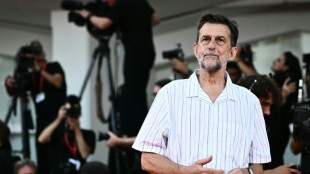 Italian director Nanni Moretti in hospital after heart attack: media
Italian director Nanni Moretti in hospital after heart attack: media
-
LIV Golf stars playing at Doral with Masters on their minds
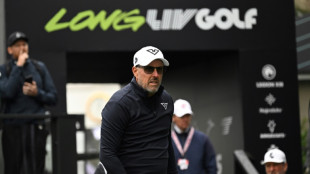
-
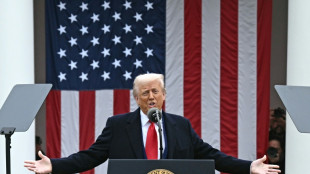 Trump unveils sweeping 'Liberation Day' tariffs
Trump unveils sweeping 'Liberation Day' tariffs
-
Most deadly 2024 hurricane names retired from use: UN agency

-
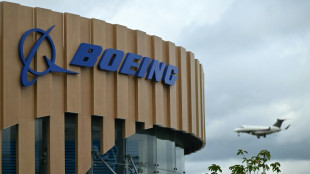 Boeing chief reports progress to Senate panel after 'serious missteps'
Boeing chief reports progress to Senate panel after 'serious missteps'
-
Is Musk's political career descending to Earth?
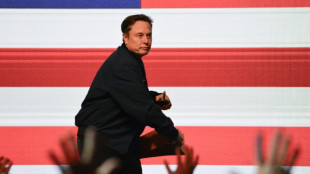
-
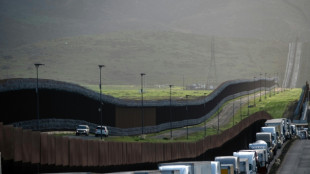 On Mexico-US border, Trump's 'Liberation Day' brings fears for future
On Mexico-US border, Trump's 'Liberation Day' brings fears for future
-
Starbucks faces new hot spill lawsuit weeks after $50mn ruling

-
 Ally of Pope Francis elected France's top bishop
Ally of Pope Francis elected France's top bishop
-
'Determined' Buttler leads Gujarat to IPL win over Bengaluru

-
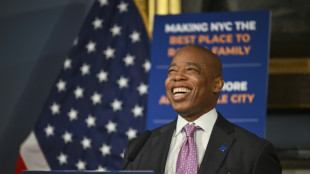 US judge dismisses corruption case against New York mayor
US judge dismisses corruption case against New York mayor
-
Left-wing party pulls ahead in Greenland municipal elections
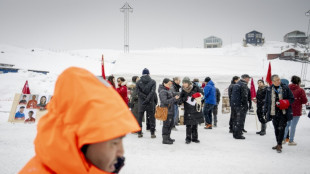
-
 Blistering Buttler leads Gujarat to IPL win over Bengaluru
Blistering Buttler leads Gujarat to IPL win over Bengaluru
-
Tesla sales slump as pressure piles on Musk
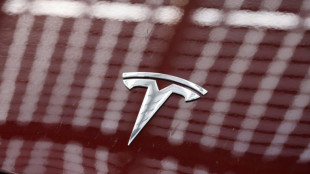
-
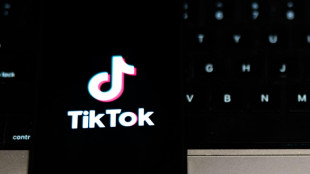 Amazon makes last-minute bid for TikTok: report
Amazon makes last-minute bid for TikTok: report
-
Canada Conservative leader warns Trump could break future trade deal
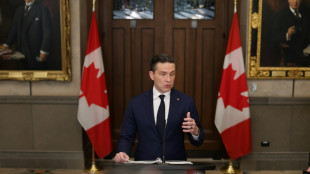
-
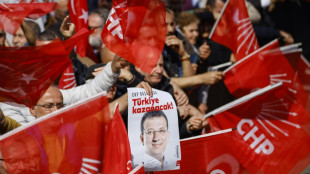 British band Muse cancels planned Istanbul gig
British band Muse cancels planned Istanbul gig
-
'I'll be back' vows Haaland after injury blow

-
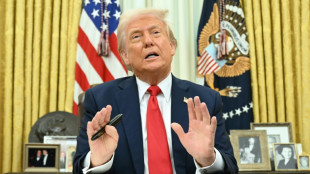 Trump to unveil 'Liberation Day' tariffs as world braces
Trump to unveil 'Liberation Day' tariffs as world braces
-
New coach Edwards adamant England can win women's cricket World Cup
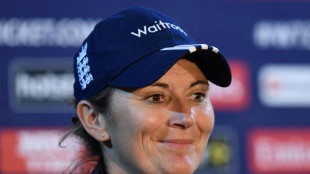
-
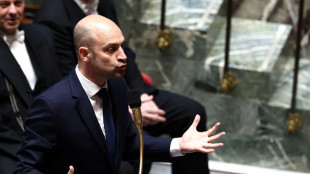 Military confrontation 'almost inevitable' if Iran nuclear talks fail: French FM
Military confrontation 'almost inevitable' if Iran nuclear talks fail: French FM
-
US stocks advance ahead of looming Trump tariffs
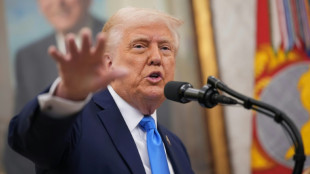
-
 Scramble for food aid in Myanmar city near quake epicentre
Scramble for food aid in Myanmar city near quake epicentre
-
American Neilson Powless fools Visma to win Across Flanders

-
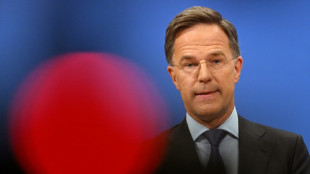 NATO chief says alliance with US 'there to stay'
NATO chief says alliance with US 'there to stay'
-
Myanmar junta declares quake ceasefire as survivors plead for aid

-
 American Neilson Powless fools Visma to win Around Flanders
American Neilson Powless fools Visma to win Around Flanders
-
Tesla first quarter sales sink amid anger over Musk politics
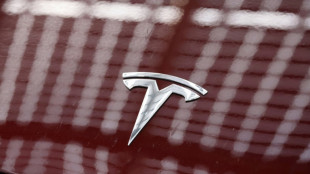
-
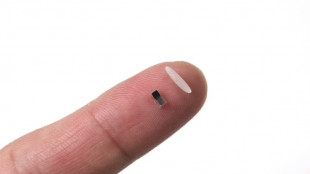 World's tiniest pacemaker is smaller than grain of rice
World's tiniest pacemaker is smaller than grain of rice
-
Judge dismisses corruption case against NY mayor
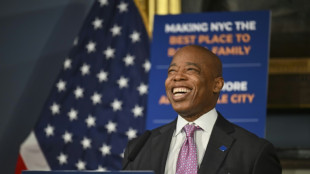
-
 Nintendo to launch Switch 2 console on June 5
Nintendo to launch Switch 2 console on June 5
-
France Le Pen eyes 2027 vote, says swift appeal 'good news'
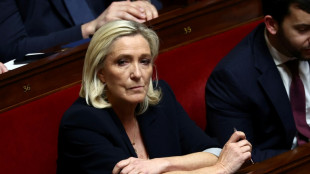
-
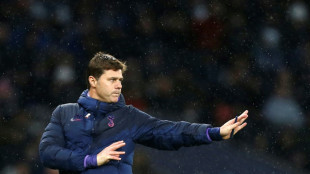 Postecoglou hopes Pochettino gets Spurs return wish
Postecoglou hopes Pochettino gets Spurs return wish
-
US, European stocks fall as looming Trump tariffs raise fears
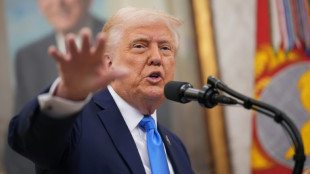
-
 Nintendo says Switch 2 console to be launched on June 5
Nintendo says Switch 2 console to be launched on June 5
-
France's Zemmour fined 10,000 euros over claim WWII leader 'saved' Jews
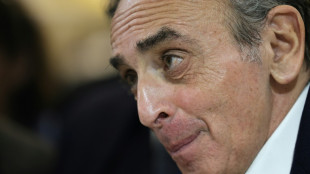
-
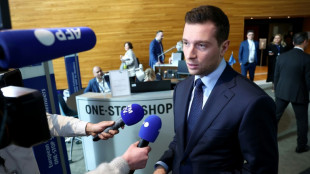 Le Pen ally denies planned rally a 'power play' against conviction
Le Pen ally denies planned rally a 'power play' against conviction
-
Letsile Tebogo says athletics saved him from life of crime
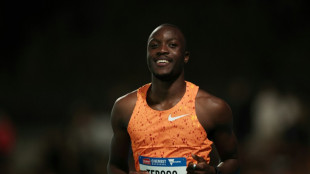
-
 Man Utd 'on right track' despite 13th Premier League defeat: Dalot
Man Utd 'on right track' despite 13th Premier League defeat: Dalot
-
Israel says expanding Gaza offensive to seize 'large areas'
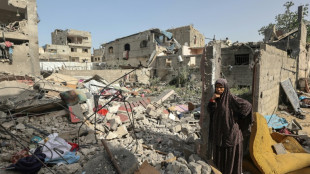
-
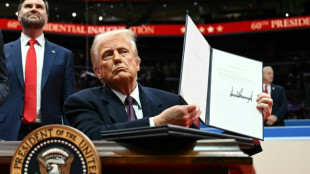 Certain foreign firms must 'self-certify' with Trump diversity rules: US embassies
Certain foreign firms must 'self-certify' with Trump diversity rules: US embassies
-
Deutsche Bank asset manager DWS fined 25 mn euros for 'greenwashing'
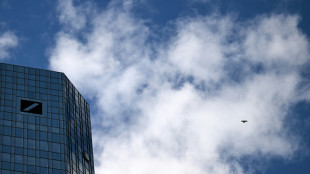
-
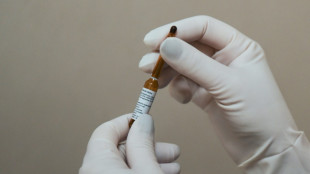 UK drawing up new action plan to tackle rising TB
UK drawing up new action plan to tackle rising TB
-
Nigerian president sacks board of state oil company
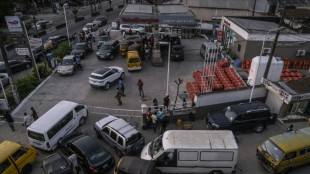
-
 Barca never had financial room to register Olmo: La Liga
Barca never had financial room to register Olmo: La Liga
-
Spain prosecutors to appeal ruling overturning Alves' rape conviction
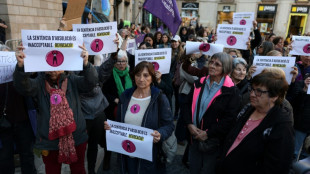
-
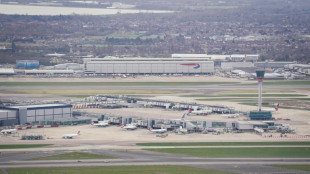 Heathrow 'warned about power supply' days before shutdown
Heathrow 'warned about power supply' days before shutdown
-
Epstein accuser Virginia Giuffre 'stable' after car crash
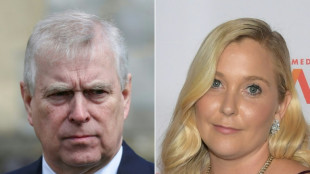
-
 Myanmar quake survivors plead for more help
Myanmar quake survivors plead for more help
-
Greece to spend 25 bn euros in 'drastic' defence overhaul: PM
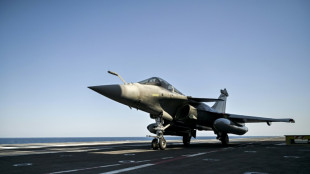
EU Pledges €800 Billion for Defence to Deter Russia
The European Union has unveiled an ambitious plan to allocate €800 billion towards bolstering its defence capabilities, a move widely interpreted as a strategic response to escalating tensions with Russia. Announced by European Commission President Ursula von der Leyen, this initiative aims to transform the EU into a formidable "defence union," shifting its economic priorities towards what some analysts have dubbed a "war economy." The decision, detailed in a recent strategic white paper, comes amid growing concerns over Russia’s military assertiveness, particularly following its ongoing aggression in Ukraine and perceived threats to NATO’s eastern flank.
The €800 billion package, to be rolled out over the coming years, includes €150 billion in EU loans and significant exemptions from the bloc’s stringent debt rules, allowing member states to finance military enhancements without breaching fiscal limits. According to sources cited by the Deutsche Presse-Agentur (DPA), the funds will target seven key areas, including air defence, cyber capabilities, and military intelligence, aiming to close critical gaps in Europe’s defence infrastructure. "If Europe wants to avoid war, it must be prepared for war," the white paper states, echoing a sentiment of deterrence through strength.
Russia’s reaction has been swift and critical. Kremlin spokesperson Dmitry Peskov accused Europe of "aggressive militarism," a charge that carries irony given Russia’s own allocation of nearly 40% of its state budget to military spending in 2025. Russian President Vladimir Putin has overseen a dramatic shift to a war economy since the invasion of Ukraine in 2022, with the country reportedly producing three million artillery shells annually—outpacing the combined output of NATO’s 32 members. This disparity in production capacity has fuelled European fears that Russia could sustain prolonged conflicts, potentially eyeing targets beyond Ukraine, such as the Baltic states or Poland.
The EU’s move also reflects unease over its reliance on the United States, particularly following uncertainties surrounding American support under a potential Donald Trump presidency. While earlier drafts of the white paper explicitly warned of over-dependence on the US, these references were softened in the final version after interventions from von der Leyen’s cabinet, as reported by DPA. Nonetheless, the €800 billion commitment underscores a push for strategic autonomy, with investments channelled into European-made defence systems to reduce external vulnerabilities.
Critics within the EU, however, question the feasibility and implications of such a shift. Transforming a civilian economy into one geared for war requires significant market interventions, a prospect that has raised doubts about political willingness and economic sustainability. The precedent of the United States during World War II—where private industries were placed under strict government oversight—looms large, yet Europe’s fragmented political landscape may complicate such coordination. Furthermore, the redirection of resources comes at a time when the EU is already grappling with energy transitions and post-pandemic recovery, with the €672 billion European Recovery Fund serving as a recent benchmark for large-scale spending.
Public sentiment, particularly in Germany, reflects growing anxiety. A Shell Youth Study cited by rbb-online.de found that the threat of war is now the top concern among young Germans, with fears of conscription and displacement driving calls for preparedness. NATO’s ongoing "Steadfast Defender" exercises, involving 90,000 troops, and the upcoming "Nordic Response" manoeuvre underscore this urgency, simulating defensive operations against a Russian incursion.
While the €800 billion figure is a political statement of intent, its implementation remains uncertain. Analysts note that it may take months, if not years, for funds to translate into tangible military assets. For now, the EU hopes this bold financial pledge will serve as a deterrent, projecting strength to Moscow while navigating internal divisions and external dependencies. Whether it instils fear in Russia or merely galvanises Europe’s resolve, the stakes for the continent’s security have rarely been higher.

Culture: Serbia’s architectural marvels

EU Residence permits: Record level to third nationals

Trump announces Homan as new 'border czar'

EU: How do we deal with Donald Trump?

Watch Live: Trump or Harris? America votes!

Georgia: Ruling party celebrates election victory

Asylum seekers: Return centres – a Solution?

Climate change: A farm in Rotterdam

EU: Overcoming barriers to equality

Germany and its outdated pension system

How important is sustainable development?



